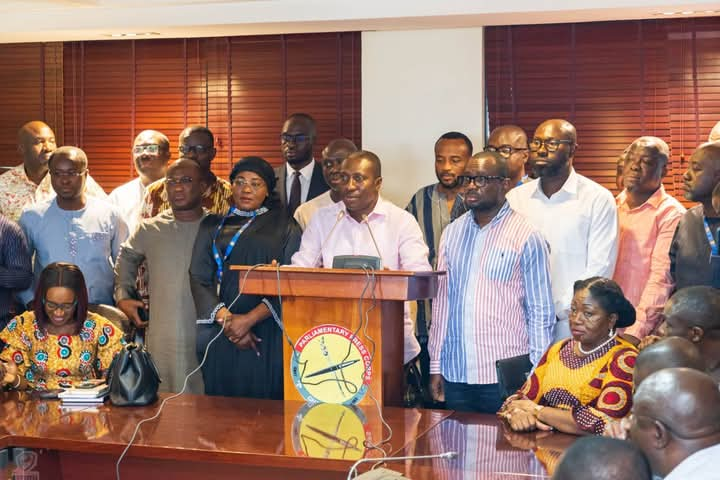COVIDNOMICS: 2022 BUDGET – BRIDGING THE INEQUALITY GAP FOR SUSTAINABLE GROWTH AND DEVELOPMENT


Introduction Ghana was on the path of trajectory growth of restoring hope, aspirations and creating wealth to the people of the country.
The unprecedented hope of turning the economic fortunes of the
country into opportunities and goals was crushed by the covid-19 pandemic.
This has created
an economic downturn with rising unemployment, large fiscal deficit, low household income
and widening inequality within the economic space.
It is interesting to note that covid -19 pandemic is an active event and has come to stay. The
threat to humanity cannot be underestimated.
This has been reiterated by the Dutch Prime Minister, Mark Rutte that, “the virus is everywhere and needs to be combated everywhere”.
Data from Johns Hopkins University on the 15th November 2012, puts the global deaths at 5.1 million and the new confirmed cases at 253.3 million. Europe has once again become the
epicentre and this has prompted governments to reconsider imposing lockdowns before the
Christmas festivities.
As a way to avert such occurrences in the future, the Ghana government moved swiftly in the
early part of the year to purchase and vaccinate over 20 million residents and had seen a
progress towards encouraging its population to get inoculated. It is now clear that a prolonged
Covid-19 pandemic will derail the fragile economic recovery.
As the Government of Ghana prepares to deliver its 2022 Financial Statement, It will be
prudent and necessary to provide new policy directions, offer reasonable solutions to drive growth, and better opportunities for the populace. In order to revive and set the economy towards resilient growth in the long term, there is the need for the annual budget to be culved
around these key areas amid the misconceptions.
Thematic areas will be Transparency,
Agenomics, Strategy, Risk, Opportunities, and Recommendations.
Again, this article provides objective, professional insights and not to pre-judge the work of the Finance Minister. It is solely advisory and not binding.
Transparency
In a crisis era, building confidence in the system and providing stimulus packages that would
keep the economy and citizens afloat was a step in the right direction.
In this regard, countries
around the world also received support from Bretton Woods Institutions including the International Monetary Fund (IMF) and the World Bank. Ghana equally received its portion
including domestic contributions to help sustain the people and the economy during the
covid-crisis.
As a result of the economic hardship posed to humans during the covid-era, the IMF
categorically advised governments of nations to, “spend whatever you need but keep the
receipts, because we don’t want accountability to be lost in the process’’.
In respect, it
is important to acknowledge that such a support received at the crucial time was a lifeline to Ghana’s economy; and it is significant that the Finance Minister spell out the breakdown in
this 2022 Budget year as a means to give confidence to investors in the international
community and give stewardship to the citizenry of the progress made in curbing the
pandemic.
Agenomics
The current 2021 Population and Housing Census (PHC) report puts the country’s population at 30.8 million according to the Ghana Statistical Service (GSS).
This indicates that our
population is growing at a very fast rate and the resources must be allocated properly to help drive and stimulate economic growth and prosperity for all, particularly the youth.
Ghana currently has a youthful population, therefore the working population cannot be
negated in this current dispensation during the pandemic.
The existing standard of observation across the globe states that ageing population has lower growth and higher public debt contrary to Ghana’s situation amid a youthful population with a rising unemployment rate
and higher levels of public debts.
According to a research paper by Jiro Honda & Hiroaki Miyamoto (Aging Economies May
Benefit Less from Fiscal Stimulus), ”Fiscal stimulus in economies with a younger population has a significantly positive effect on growth, but the effect is much weaker in aging
economies’’.
This makes it critical that the 2022 Budget would, among other things,
incorporate strategic policy direction in all sectors of the economy to help boost productivity, create employment opportunities, and alleviate the tense economic conditions.
*Strategy*
It is very significant to diverge from the excessive reliance on orthodox economic models to present ones which are more focused on building the technological growth of the country. Which is crucial for Ghana to opt for an economic model that will help reduce imports,
increase export production, support SMEs, debt financing and encourage greater
diversification of the economic assets.
The country’s economy is not under distress or overheating. However, it is progressively
retarding due to the high levels of unemployment, coupled with the current changes in domestic commodities due to cash strapped challenges faced by businesses in Ghana.
History has taught us the economy does not get back to where it started, instead strategic
decisions would ignite its recovery and revival. Timeframe is key and therefore stringent
measures must be in place for judicious disbursement and proper allocation of resources to the real sectors of the economy. The Ghana CARES programme must be the highlight for
recovery.
*Risk*
Firms and businesses within the Ghanaain economy expected a fired-up economy after the easing of the lockdown restrictions. This anticipation was crippled by the effects of the covid pandemic creating a shortfall in production due to cut down in supply chain affecting profit returns, laying off workers, and difficulty in accessing credit facilities. The uncertainties of the
future remain a threat as covid-19 continues to ravage countries globally in spite of the effort
of vaccination across continents.
Governments all over the world are voracious borrowers and Ghana is not an exception.
The Public sector borrowing requirement (PSBR) has been on the ascendancy over the
years which is making the nation unattractive for accessing future credit on the international
market due to its creditworthiness and refinancing difficulties.
The IMF put Ghana’s national debt at ¢335bn at the end of July, 2021 and the interest
payments per the 2021 Budgets around ¢36bn. Unfortunately, funds have been demanded
over and above its required threshold, which inturn affects government liquidity and financing of the economy thereby increasing the cost of borrowing from the international market.
There are only two mitigating measures that the Finance Minister, Ken Ofori-Atta can adopt to deal with the rising debt issue within the short-to-medium term growth of the
economy.
● First, it could default on a component of its debt, and make what is left sustainable.
● Second, It could cancel out the debt held by the Central Bank based on the debt to
GDP ratio.
Opportunities
Entrepreneurial revolution can only take place when there is an enabling environment, capital for SMEs to access constantly and a specialised target technological model that will harness innovations and drive a digitalised economy.
Ghana Enterprises Agency (GEA) was a springboard for the government to drive economic recovery and build a capacity with the private sector. Unfortunately, the risk exposure makes
it difficult to fire up the economy.
We anticipated that the Development Bank of Ghana (DBG) would come through during the Mid-Year Budget for 2021 to complement and inject a sense of urgency to help businesses
and address industrial capital gaps. Any delay in setting up the DBG in 2022 will be a missed
opportunity and will be a disservice to the economic recovery path of the nation.
During times of uncertainties and crisis, great opportunities emerge from enormous disruption of society. These are times to unleash dreams and bring to the fore new ideas with no cost
attached.
Entrepreneurship takes the centre stage of the economy, not “big brand names” but Small
and Medium-size Enterprises (SMEs). Entrepreneurship must be taught, mentored, trained and equipped with technical know-how. They are good at spotting opportunities, responding to market conditions and are a crucial part of Ghana’s economy, with a contribution of 70%
to the gross domestic product (GDP).
Productivity and quality employment will only come by building and sustaining SMEs. This
will require patience, time and space to grow into competitive enterprises.
*Recommendation*
There is the need to empower the MMDCE to assess the opportunities within their areas that
can help create short-to-medium term jobs. In addition, there should be a focus on construction of industrial parks that would help bring informal and non-formal sectors of the economy under one umbrella. Other areas to consider
include:
● Mobilise revenue by introducing Ecommerce and Courier Tax.
● Reduce Telecommunication Tax to support, sustain and maintain digitization of the economy.
● Adjust the Energy Sector Recovery Levy (Delta Fund) to reduce the transmission
effect on the economy to alleviate hardship and the materialisation of the tax incentives
provided to the tourism industry.
● Increase the covid-19 vaccination coverage to sustain lives both aged and the young.
● Ensures the establishment of the Development Bank of Ghana (DBG) to facilitate the fragile recovery of the economy.
● The unemployment scheme set-up must be channelled to sustain the NABCO initiative
implemented by the government.
● Implement effective social intervention programmes that would seek to quickly bridge
the rising inequality and alleviate poverty amongst the people.
● Enhanced the LEAP programme to continually cater for the orphan, vulnerable,
disabled and the elderly within the Ghanaian communities.
By SAMUEL OKYERE DONKOR (INVESTMENT BANKER)





